Events for February
1st
No Events
Events for February
2nd
No Events
Events for February
3rd
No Events
Events for February
4th
No Events
Events for February
5th
No Events
Events for February
6th
No Events
Events for February
7th
No Events
Events for February
8th
No Events
Events for February
9th
No Events
Events for February
10th
No Events
Events for February
11th
No Events
Events for February
12th
No Events
Events for February
13th
No Events
Events for February
14th
No Events
Events for February
15th
No Events
Events for February
16th
No Events
Events for February
17th
No Events
Events for February
18th
No Events
Events for February
19th
No Events
Events for February
20th
No Events
Events for February
21st
No Events
Events for February
22nd
No Events
Events for February
23rd
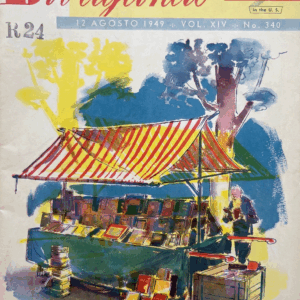
6:00 pm - 8:00 pm
*POSTPONED* Divagando in Context: Reading Transatlantic Cultural Infrastructures
Events for February
24th
No Events
Events for February
25th
No Events
Events for February
26th
No Events
Events for February
27th
No Events
Events for February
28th
No Events
From the Dean’s Desk
New Calandra Programs in 2026
Posted on by Andrew Checchia
With the start of the new year, we are preparing another set of exciting events and programs at the Calandra Institute! Our calendar for this semester is in the last stages of development, and we will share it with our community as soon as it is finalized. In the meantime,
...read moreNews
Call for Artwork: New Practices in Italian American and Italian Diasporic Contemporary Art
Read More
The Gallery at Calandra
March 2026 to Summer 2026
Curated by Rosa Berland
The John D. Calandra Italian American Institute, located in Midtown Manhattan, invites submissions for a curated exhibition opening in March 2026 at the Calandra Gallery. The exhibition will highlight contemporary practices grounded in traditional and material-based media. Curated by art historian Rosa Berland, this exhibition will explore Italian American and Italian diasporic artistic practices with special attention to the heritage of craft and atelier technique. By bringing together a range of current approaches to artmaking, the exhibit presentation will situate this work within the extended history of Italian diasporic artists and teachers whose contributions have shaped the development of American art.
Eligibility and Media
Submissions are welcome in the following categories
- Works on paper
- Photography
- Painting
- Prints
- Small sculpture
- Textiles and fiber-based works
- Small artist books or sketchbooks
Submission Guidelines
Artists may submit up to six works for consideration.
Please include
- Link to a cloud-based folder (Google Drive, Dropbox, or similar) containing high-quality images; please name the images with your name and the title
- A list with title, date, medium, and dimensions for each work
- A brief artist bio or statement
- Contact information including name, email, and phone number
Submission Deadline
February 10, 2026
Details and Delivery Requirement
By March 13, selected artists must mail or deliver artwork, in person or via a representative. Installation details will be provided upon acceptance. There are no restrictions or commissions on the sale of work, however all work must remain on view throughout the run of the exhibition. Artwork should be installation ready, and/or permission must be given to install hardware or mounts.
How to Submit
Send materials to [email protected]
-
Rosa Berland is a historian of modern and contemporary art with a special interest in the artistic production of diasporic America. In addition to past work at The Museum of Modern Art, the Solomon R. Guggenheim Museum, and The Frick Collection, she has published extensively on modern art and serves as the Honorary Director of the Edward E. Boccia Artist Trust and teaches art history at Molloy University, Rockville Centre, New York.
The John D. Calandra Italian American Institute (Queens College, CUNY) has been dedicated for more than thirty years to fostering a greater understanding of the Italian American experience through research, education, and public programs and to serving as a vital resource for scholars, students, and the community.
Announcing the 2026 Italian Diaspora Studies Summer Seminar
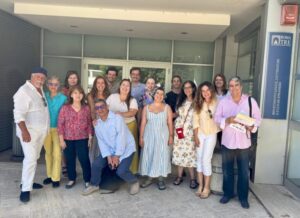 Study Italian Diaspora Culture in Rome through a Unique Summer Program in June 2026
Read More
Study Italian Diaspora Culture in Rome through a Unique Summer Program in June 2026
Read More
 Study Italian Diaspora Culture in Rome through a Unique Summer Program in June 2026
Study Italian Diaspora Culture in Rome through a Unique Summer Program in June 2026The Italian Diaspora Studies Summer Seminar (IDSSS) is a three-week summer program that takes place at Roma Tre University. It is designed to introduce participants (doctoral students and professors) to cultural studies of the Italian diaspora from a variety of academic perspectives and to foster the development of individual projects responding to the materials covered in the series of seminars in literature, film, and the social sciences. All participants will be encouraged to engage in a special research project.
The Italian Diaspora Studies Summer Seminar is open to graduate students (doctorate; advanced MA students may be considered) and professors from colleges and universities worldwide. This is a collaborative program between the John D. Calandra Italian American Institute (Queens College of The City University of New York) and the Roma Tre University. Professors from these two institutions and others will comprise the teaching faculty for the entire three weeks. This is the tenth year of the Seminar.
The Seminar will accept up to twenty participants for the 2026 summer program. The dates for 2026 are June 15–July 03, 2026.
As of now, there are still some spots available, so please apply soon.
Fellowships of $1,500 per participant are available upon acceptance. Application forms can be found here.
Fellows will spend three weeks in a four-star hotel; the seminar classes will be held at Roma Tre University. Cost of room, board (breakfast and lunch), and tuition is $3,500. Graduate credit pending. Air and ground travel are additional. Click here for last summer’s brochure, which will give you an idea of the program.
Application Deadline: February 27, 2026
CALL FOR APPLICANTS: Editor of Italian American Review
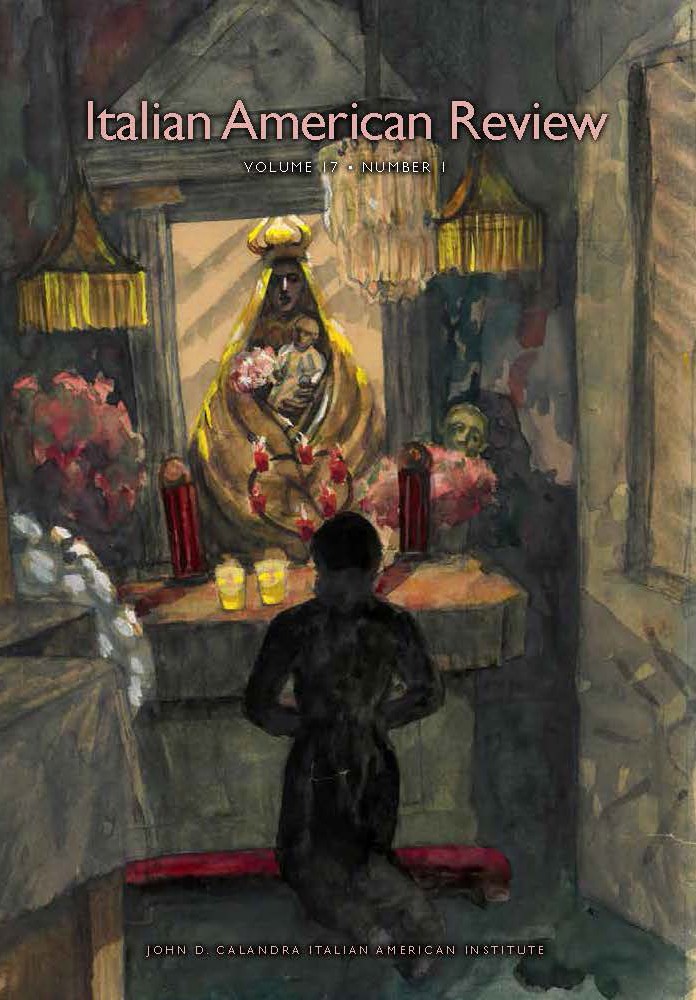 The Italian American Review, a peer-reviewed, bi-annual journal devoted to the study of the histories and cultures of Italian Americans and the Italian diaspora, welcomes applications from qualified scholars for the position of editor of the journal for a three-year term commencing January 2027.
Read More
The Italian American Review, a peer-reviewed, bi-annual journal devoted to the study of the histories and cultures of Italian Americans and the Italian diaspora, welcomes applications from qualified scholars for the position of editor of the journal for a three-year term commencing January 2027.
Read More
 The Italian American Review, a peer-reviewed, bi-annual journal devoted to the study of the histories and cultures of Italian Americans and the Italian diaspora, welcomes applications from qualified scholars for the position of editor of the journal for a three-year term commencing January 2027.
The Italian American Review, a peer-reviewed, bi-annual journal devoted to the study of the histories and cultures of Italian Americans and the Italian diaspora, welcomes applications from qualified scholars for the position of editor of the journal for a three-year term commencing January 2027.The IAR is interdisciplinary in nature and features articles about a wide variety of topics related to Italian American and Italian diasporic experiences, such as migration, politics, labor, race, gender, ethnicity, urban studies, literary criticism, and film studies, as well as various forms of cultural production (e.g., music, religious feasts). The journal does not accept creative work such as poetry, fiction, or memoir. The IAR also publishes book reviews, film and digital media reviews, exhibition reviews, and occasionally "Notes and Documents," such as biographical sketches, obituaries, and reproductions of historical documents, etc.
The IAR is available online through EBSCO's "America: History and Life" database and is listed in the MLA Directory of Periodicals and Italy's ANVUR directory of scientific publications.
The editor of the IAR is responsible for overseeing the entirety of the editorial and pre-production processes and will be expected to:
- Sustain and build the IAR's high academic stature and integrity
- Proactively solicit articles from potential contributors
- Read and assess submissions for suitability of content, scholarly rigor, and quality of writing
- Facilitate the blind peer review and revision processes
- Handle publication decisions in a professional and timely manner
- Adhere to the highest ethical standards, preserving confidentiality in the peer review process
- Work closely with the Calandra Institute's in-house editorial staff, IAR review editors, and production managers on readying text for publication
- Act as the communication link among contributors, review editors, staff, and editorial board.
Qualified candidates should be fluent in English and familiar with Italian and ready to work in a collaborative and collegial production environment. Candidates should be well-versed in Italian American and Italian diaspora studies and active in recent and current research in that—or a closely related—field. The successful candidate should be a highly motivated person, devoted to the promotion of every aspect of the journal's success, championing it whenever possible in appropriate scholarly venues.
The successful applicant will assume editorial duties for the production of the Winter 2027 volume of the journal, transitioning into the position by Fall 2026. This is a three-year, non-compensated appointment. The Calandra Institute will provide logistical support, including line-editing, managing, and, if needed, office space. The publisher handles copy-editing, design, printing, mailing, and marketing of the journal.
Interested candidates should email a letter of interest and a current CV to: [email protected] (subject heading "IAR Editor").
The application letter should discuss professional and scholarly experiences that make the candidate suited to and qualified for the position. It would be helpful to highlight and explain prior experience in an editorial capacity as well as vision and goals for the IAR. Related inquiries may be sent to the same email. Applications will be accepted until April 1, 2026, or until the position is filled. A committee of IAR advisory board members will review applications and select the successful candidate.
ANNOUNCING: Pietro “Pete” Panto Italian Diaspora Labor Dissertation Fellowship
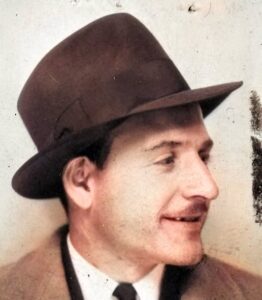 This year marks the second of six funded years of the Panto Fellowship prize. The $1,000 fellowship is for graduate students who are writing their dissertation on any topic involving Italian emigrant and/or Italian ethnic labor and/or working-class life either in the United States or in the wider Italian diaspora.
Read More
This year marks the second of six funded years of the Panto Fellowship prize. The $1,000 fellowship is for graduate students who are writing their dissertation on any topic involving Italian emigrant and/or Italian ethnic labor and/or working-class life either in the United States or in the wider Italian diaspora.
Read More
 This year marks the second of six funded years of the Panto Fellowship prize. The $1,000 fellowship is for graduate students who are writing their dissertation on any topic involving Italian emigrant and/or Italian ethnic labor and/or working-class life either in the United States or in the wider Italian diaspora.
This year marks the second of six funded years of the Panto Fellowship prize. The $1,000 fellowship is for graduate students who are writing their dissertation on any topic involving Italian emigrant and/or Italian ethnic labor and/or working-class life either in the United States or in the wider Italian diaspora.Submissions may come from all relevant fields of study in migration and labor studies, including, but not limited to, history, literary studies, film studies, gender studies, and political science. The fellowship will run for six years with one award given each year. The fellowship award is $1,000 US per year.
The fellowship is named after dockworker and labor activist Pietro “Pete” Panto (1910–1939), who was murdered for leading rank-and-file stevedores in a struggle for safe and democratic working conditions on the Brooklyn waterfront, which had long been in the grip of mobsters and corrupt elements in the union.
Applications can be submitted here: https://bordigherapress.submittable.com/submit.
Deadline for submissions is May 1, 2026. The winner will be notified on Labor Day, September 7, 2026.
If you have any questions, please write to the Calandra Institute at the following email: [email protected]
Book Release: Expanding Diasporic Identity by Anthony Julian Tamburri
New book by the Dean of the Institute!
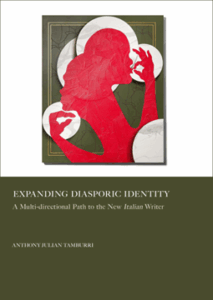 This study examines the changing dynamics of the “Italian” writer and how we, as cultural critics, need to re-think our definitions of the new Italian writer. In so doing, we must also re-consider the notion of the geo-cultural zones that we characterize as “Italian.” Namely, how do we categorize that writer who, having left Italy and now living beyond its geo-cartographic boundaries, writes in Italian? Similarly, who is that other writer who, originating from another country that is both culturally and linguistically different from Italy, writes in Italian? Finally, where within these two groups do we position the writer of Italian origin who also lives in another country and, different from the previous two types of writers, composes his/her work in the language of his/her host country?
This study examines the changing dynamics of the “Italian” writer and how we, as cultural critics, need to re-think our definitions of the new Italian writer. In so doing, we must also re-consider the notion of the geo-cultural zones that we characterize as “Italian.” Namely, how do we categorize that writer who, having left Italy and now living beyond its geo-cartographic boundaries, writes in Italian? Similarly, who is that other writer who, originating from another country that is both culturally and linguistically different from Italy, writes in Italian? Finally, where within these two groups do we position the writer of Italian origin who also lives in another country and, different from the previous two types of writers, composes his/her work in the language of his/her host country?
Read More This study examines the changing dynamics of the “Italian” writer and how we, as cultural critics, need to re-think our definitions of the new Italian writer. In so doing, we must also re-consider the notion of the geo-cultural zones that we characterize as “Italian.” Namely, how do we categorize that writer who, having left Italy and now living beyond its geo-cartographic boundaries, writes in Italian? Similarly, who is that other writer who, originating from another country that is both culturally and linguistically different from Italy, writes in Italian? Finally, where within these two groups do we position the writer of Italian origin who also lives in another country and, different from the previous two types of writers, composes his/her work in the language of his/her host country?
This study examines the changing dynamics of the “Italian” writer and how we, as cultural critics, need to re-think our definitions of the new Italian writer. In so doing, we must also re-consider the notion of the geo-cultural zones that we characterize as “Italian.” Namely, how do we categorize that writer who, having left Italy and now living beyond its geo-cartographic boundaries, writes in Italian? Similarly, who is that other writer who, originating from another country that is both culturally and linguistically different from Italy, writes in Italian? Finally, where within these two groups do we position the writer of Italian origin who also lives in another country and, different from the previous two types of writers, composes his/her work in the language of his/her host country?Newsletter Signup
Join Our Newsletter
